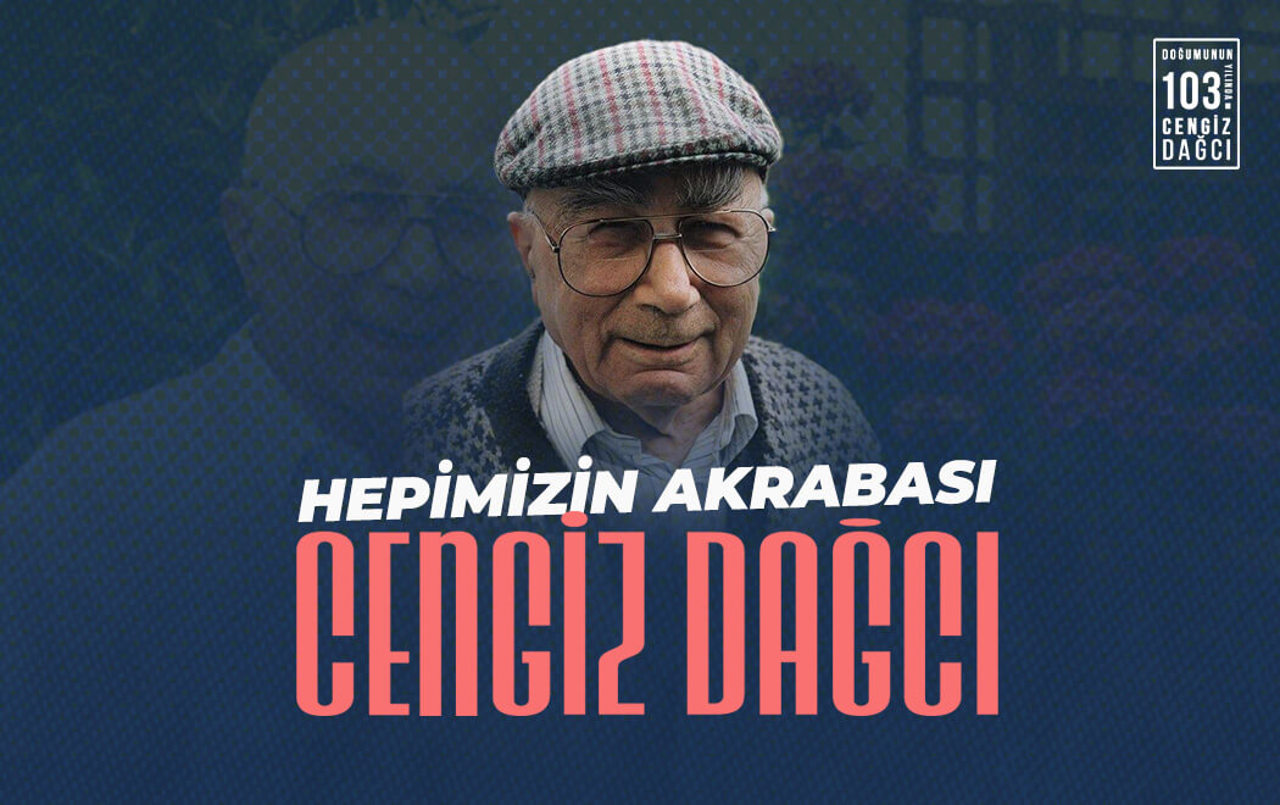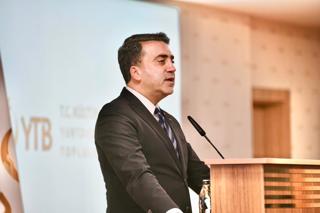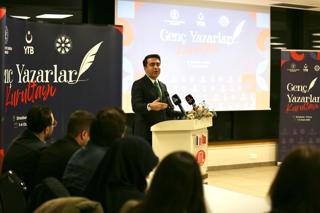A KINSMAN OF ALL OF US: CENGIZ DAĞCI
Perşembe, Ekim 21, 2021
A KINSMAN OF ALL OF US: CENGIZ DAĞCI
Cengiz Dağcı was born 103 years ago, on 9 March 1919, in Gurzuf, a town surrounded by green mountains in Crimea, a town of Yalta, in a tough time. His father was Emir Hüseyin Agha and his mother was Lady Fatma. His family was one of any Tatar Turk family in Crimea. His childhood was spent in Gurzuf until the age of four, and in the village of Kızıltaş in Gurzuf until the age of thirteen. After Dağcı's happy initial years of childhood, the winds of Stalin's murderous politics began to hit the glorious gardens of Crimea. With Stalin's takeover, the rough days of the Crimean Turks had also begun.
In 1939 he was forced to serve as a soldier for the regime that subjected his lands to famine. In 1941, he was captured by the Germans for 7 months and was taken to the Kirovograd prison camp in Ukraine. Later, in an interview, he would speak of those painful days as "I can never forget what the Germans did in the prison camps." In April 1942, the effects of this suffering, which physically ended in April 1942, penetrated his soul’s depths.
In 1944 Crimea once again came under the rule of communism. On the other hand, this development was also the footsteps of greater tyranny and deportation than those witnessed recently. On the morning of 18 May 1944, 250 thousand of Crimean Tatars were put into animal wagons and exiled to Uzbekistan.
Dağcı's pen could not stay quiet about what he experienced and he began to write. It was in this process that his most famous novels, Korkunç Yıllar and Yurdunu Kaybeden Adam, were born. He kept a record of World War II not through historical information and concrete evidence, but through the deep marks left on the author's mind by his painful experiences. Dağcı had always written his works in Crimean Turkish until he learnt Turkish. In the following years, he started to write his novels in Turkey Turkish. With the great interest of the Crimeans living in Turkey, Cengiz Dağcı became one of the expert writers of Turkish literature.
Sources:
Alim Kahraman, “Cengiz Dağcı”, Türkiye Diyanet Vakfı İslam Ansiklopedisi (2020 yılında gözden geçirilmiş 2. Basım/EK-1. Cildi), ss.300-301.
Cevat Özyurt, “Nostalji Olarak Edebiyat: Cengiz Dağcı’nın Küçük Yurdu”, Türk Dili, cilt.17, sa.713, ss.31-41, 2014.
Yazar Cengiz Dağcı'nın Hayatı - Türk Dünyasının Enleri - TRT Avaz: https://www.youtube.com/watch?v=rDAso02i9EQ



